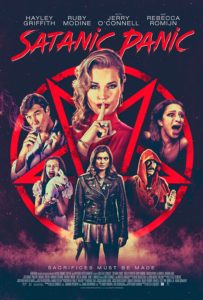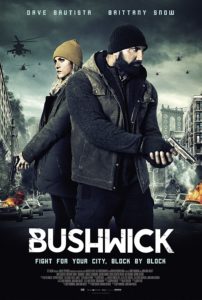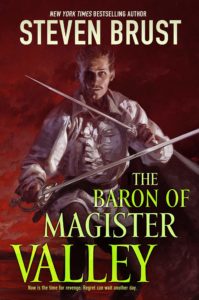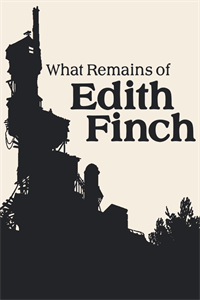 I’m going to cut straight to the chase here: what Home Alone did for burglars, Satanic Panic does for devil worshipers.
I’m going to cut straight to the chase here: what Home Alone did for burglars, Satanic Panic does for devil worshipers.
You have no idea how much I want to just stop there, but I feel obligated to say at least enough that the text reaches as far as the poster, you know? So, this is basically a lazy comedy of errors in which the pizza delivery girl rides into the rich neighborhood hoping for a big tip, and instead finds herself entangled with Satanists on the night of the annual(?) sacrifice, and hijinks? Why yes, they ensue.
Despite my diss above, it was actually pretty funny. It’s just that the plot doesn’t make a lick of sense. But the pizza girl’s wide-eyed innocent irritation makes up a lot of ground, and with all the blood splashing around and the fish out of water laughs and the bumbling, ineffective devil worshiper laughs, I didn’t actually care about how nonsensical the plot was.
Basically, if you’ve always secretly believed that rich people are not like you and me, because they got their money and power as a result of sacrifice rather than hard work, and also that they hold orgies on the full moon? (And who hasn’t, at one point or another?) If so, whoever made this movie made it for you. Also, I learned in the last scene that this was made in Dallas, and yeah, if I was going to pick a city where that is what the rich people are like, Dallas or LA would have been the coin toss. (I know, I know, you’re thinking, what about Houston? But the climate was survivable, so Houston was already off the table.)
 I’ve been to New York City once, in the late ’90s before things got “cleaned up”, whatever that means. So I saw Central Park when it was scary, and based on the looks I got in my giant cloak, apparently I was the scary person in the park. Which is okay. And I saw all the peepshow spots on what I have to assume some 20 years later was 42nd Street. The posters in the windows say “a quarter”, but you cannot get into those places for a quarter. Which is false advertising, but “cleaning them up” for false advertising seems a little harsh. About the only other thing I did was, because I was young and foolish, go to the Hard Rock Café. I’m cooler now than I was then, in most ways.
I’ve been to New York City once, in the late ’90s before things got “cleaned up”, whatever that means. So I saw Central Park when it was scary, and based on the looks I got in my giant cloak, apparently I was the scary person in the park. Which is okay. And I saw all the peepshow spots on what I have to assume some 20 years later was 42nd Street. The posters in the windows say “a quarter”, but you cannot get into those places for a quarter. Which is false advertising, but “cleaning them up” for false advertising seems a little harsh. About the only other thing I did was, because I was young and foolish, go to the Hard Rock Café. I’m cooler now than I was then, in most ways. It has taken me over three months to read
It has taken me over three months to read  Into the Forest
Into the Forest I played another entire game over the past few days. This is so so weird. (Which I say every time I finish a game, I know. But it is! Especially relative to how long it’s been since I finished a book[1].)
I played another entire game over the past few days. This is so so weird. (Which I say every time I finish a game, I know. But it is! Especially relative to how long it’s been since I finished a book[1].) So far, my favorite thing about Xbox’s Game Pass service is that it gives me the freedom to try things out that I cannot otherwise convince myself to pay for. To wit,
So far, my favorite thing about Xbox’s Game Pass service is that it gives me the freedom to try things out that I cannot otherwise convince myself to pay for. To wit,